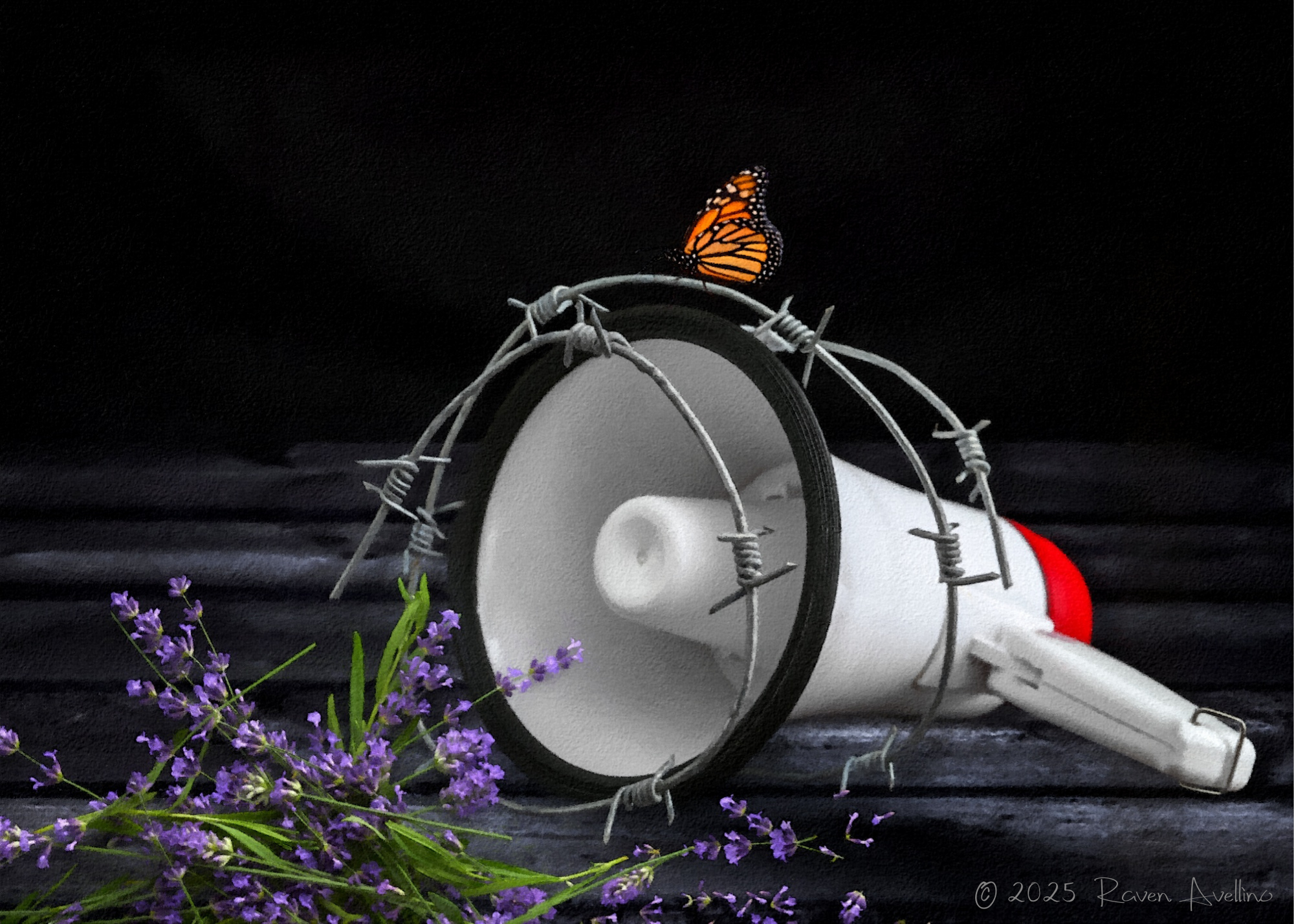When Fiction Tells the Truth: How Dystopian Worlds Expose the Obedience, Propaganda, and Emotional Surrender of Our Own

Fictional dystopias are sometimes laughably obvious. Controlled media, brutal punishments, citizens too scared to whisper the truth. You see the flags, the uniforms, the slogans, the ever-watching eyes.
But real regimes? They often show up in business casual, holding a press release, and insisting everything is normal. Nothing to see here.
We like to believe we’d resist. That we’d stand up, speak out, join the underground. But fiction asks an uncomfortable question: would we really?
That’s the power of dystopian storytelling. It doesn’t just entertain or frighten. It disarms us long enough to slip a mirror into our hands. These stories help us feel the creeping dread, the numbness, the disorientation of a world where lies become truth and truth becomes "fake news".
In real life, these changes arrive slowly, often in the language of “safety” or “progress”. Fiction gives us the stripped-down version, unfiltered. It teaches the lessons that real regimes prefer we don't learn.
Obedience Doesn’t Look Like a March, It Looks Like a Shrug
In fiction, obedience is stylized. A salute, a chant, a betrayal framed with music and lighting. But beneath the aesthetic is something quieter and more familiar: the gradual erosion of resistance.
The Handmaid’s Tale doesn’t begin with red robes. It starts with small restrictions. Frozen bank accounts. A suggestion that it’s temporary. Then it isn’t.
Obedience is rarely demanded all at once. It accumulates, quietly. Through fear, yes, but also through silence and small concessions. Through the chilling realization that not everyone is fighting back.
Timothy Snyder writes in On Tyranny, “Most of the power of authoritarianism is freely given.”
Fiction lets us watch that power exchange up close. We see characters shift from uneasy to compliant, from resistant to resigned. Sometimes it happens for survival, sometimes simply out of fatigue.
In the real world, these moments don’t come with dramatic music. They come with policies buried in reports, with new rules that seem too minor to protest. Fiction shows us how easy it is to surrender in increments.
The Slow Rebranding of Reality
We picture propaganda as bold slogans and bad posters. In fiction, it’s often blatant. War is Peace. Freedom is Slavery. Ignorance is Strength. Orwell wasn’t trying to be subtle.
But propaganda doesn’t always need volume. Sometimes it just needs to be everywhere. Dystopian fiction strips propaganda of its polish. It shows the emotional manipulation underneath. Shame, pride, fear, loyalty. These stories reveal what real-world messaging often hides.
In The Hunger Games, the Capitol doesn't just demand obedience. It demands admiration. It paints violence as spectacle and grief as entertainment.
Real-world propaganda is subtler. It doesn’t always come from a single source. It filters through media, social platforms, algorithms. It doesn’t tell you what to think. It just keeps repeating lies until you forget that you used to know the truth.
Hannah Arendt, in The Origins of Totalitarianism, wrote, “The ideal subject of totalitarian rule is not the convinced Nazi or the convinced Communist, but people for whom the distinction between fact and fiction no longer exists.”
Sound familiar?
Emotional Numbness Is Not Neutral
Characters in dystopian stories often grow cold. Not because they want to, but because feeling becomes dangerous. Numbness is a defense mechanism. A way to survive when the world demands too much.
Katniss stops speaking. Winston detaches from love. June learns to suppress every reaction.
Numbness allows characters to endure, but at a cost. It becomes easier to ignore injustice, easier to comply, easier to forget how to feel.
The same happens in the real world. When every headline feels catastrophic, emotional distance becomes practical. But over time, that distance turns into apathy. Not because we don’t care, but because we’re exhausted. Fictional regimes use numbness as a tool. Real ones do too. Dystopian fiction helps us notice the moments where numbness becomes surrender.
Why Fiction Reaches Us When Facts Can’t
Facts are useful, but they don’t always hit where it counts. Fiction goes deeper. It bypasses skepticism and cuts straight to the gut.
Timothy Snyder wrote, “History does not repeat, but it does instruct.”
Fiction also instructs by dramatizing history’s warnings. It makes abstract ideas personal. It lets us feel the weight of choices and the slow unraveling of truth.
It clarifies by drawing a hard line between what’s real and what isn’t, and it makes us question where that line is starting to blur. That clarity is dangerous to real regimes, which is exactly why it matters.
And it’s not just the stories themselves—it’s the act of reading them. Fiction requires emotional participation. You’re not just absorbing information, you’re stepping inside someone else’s fear, hope, numbness, or rage. That’s not a passive experience. It’s a rehearsal for empathy. A reminder of what it feels like to care about what happens next.
In a world that overwhelms us with headlines, fiction slows us down. It creates a controlled environment where we can process fear safely, where we can connect with suffering without being paralyzed by it. And for many readers, that’s not an escape, it’s a way back to engagement.
This is why regimes that fear dissent also fear books. Not just journalism or history, but novels. Especially the ones that make people feel.
Emotional Resistance
In the bleakest dystopias, survival isn’t always about hiding or fighting. Sometimes, it’s about remembering how to feel.
The characters who endure aren’t necessarily the "strongest". They’re the ones who refuse to let cruelty rewire their instincts. They notice injustice and oppression. They grieve. They hold on to pieces of themselves the regime hasn’t managed to strip away. So while these characters may not be the strongest, they’re still an enormous threat to those abusing power.
Dystopian fiction doesn’t just show the machinery of oppression, it shows what it takes to stay human when the world punishes humanity. Especially in romance-driven stories, the act of connection becomes radical. A moment of intimacy is no longer just about love. It’s about defiance and preservation. It’s a way of insisting, quietly but completely, that tenderness still has a place in the wreckage. That even under surveillance, under threat, under impossible odds, feeling deeply is not a flaw—it’s a refusal to break the way they want you to.
These stories remind us that rebellion isn’t always a revolution. Sometimes, it’s a heartbeat. Sometimes, it’s simply the choice to care.
Romance: Why It Matters When Love Survives the End
Romance has always made some readers uncomfortable, especially when it dares to show up in serious narratives. Add a collapsing society or a brutal regime, and suddenly any whisper of tenderness is accused of being unrealistic or indulgent. As if love is somehow less believable than dystopia.
But what could be more human than wanting connection when everything else has been stripped away?
The dismissal of romance in dystopian fiction is often a dismissal of vulnerability itself. Critics who roll their eyes at intimacy during crisis tend to assume that emotional survival is optional—or worse, that it weakens the narrative. But in truth, love isn’t a detour from the story. It’s part of what makes the story matter.
Romance complicates dystopia in the best way. It reminds us that people don’t stop needing each other when the world falls apart. If anything, they need each other more. And when those connections are hard-won—when trust is dangerous and touch is rare—every glance, every act of caring becomes charged with meaning.
This is especially true for marginalized characters. When systems are designed to erase or control them, falling in love is not just personal. It’s political. It’s survival. And pretending that survival is only physical is a kind of lie.
Romance belongs in dystopia. When everything is broken, love is one of the few things that still insists on being whole.
Conclusion: Reading the Playbook Before It Becomes Reality
The worst regimes don’t just take your freedom. They convince you you’re still free. They don’t chain you. They teach you not to move.
That’s why we need these stories. Not because they predict the future, but because they expose the present. They take all the gaslighting, absurdity, and doublespeak and hold it uncomfortably still. They’re not warning signs so much as illuminated billboards.
Dystopian fiction shows us the emotional cost of living under systems that want us compliant, exhausted, and just distracted enough not to notice what we've given up. It pulls back the curtain while we still have time to see who’s standing behind it, and which type of poison they're trying to sell us.
Fictional regimes might come with creepy slogans and prosperous villains, but the logic behind them is chillingly familiar. These stories give us the emotional vocabulary to name what’s wrong before it becomes unchangeable, or worse, before it starts to feel normal. And once you see it clearly on the page, it gets harder to pretend you don’t recognize it outside the page, too.
Stories alone won’t fix what’s broken. But they can sharpen our instincts, stir our resistance, and help us recognize the shape of harm before it arrives wearing a new uniform. Once you've felt something on the page—grief, anger, courage—you’re more likely to notice it off the page, too.
So what do we do with that awareness?
We stay awake. We pay attention. We ask better questions. We notice when language shifts, when rules change, when silence becomes the safer choice. And when we can, we speak, because stories have taught us what happens when we don’t.
If dystopian fiction gives us anything, it’s the reminder that resistance doesn’t always look like a revolution. Sometimes, it looks like refusing to go numb. Sometimes, it’s just knowing the difference between truth and the version of reality you’re expected to swallow. And this may be the quietest kind of revolution there is.


